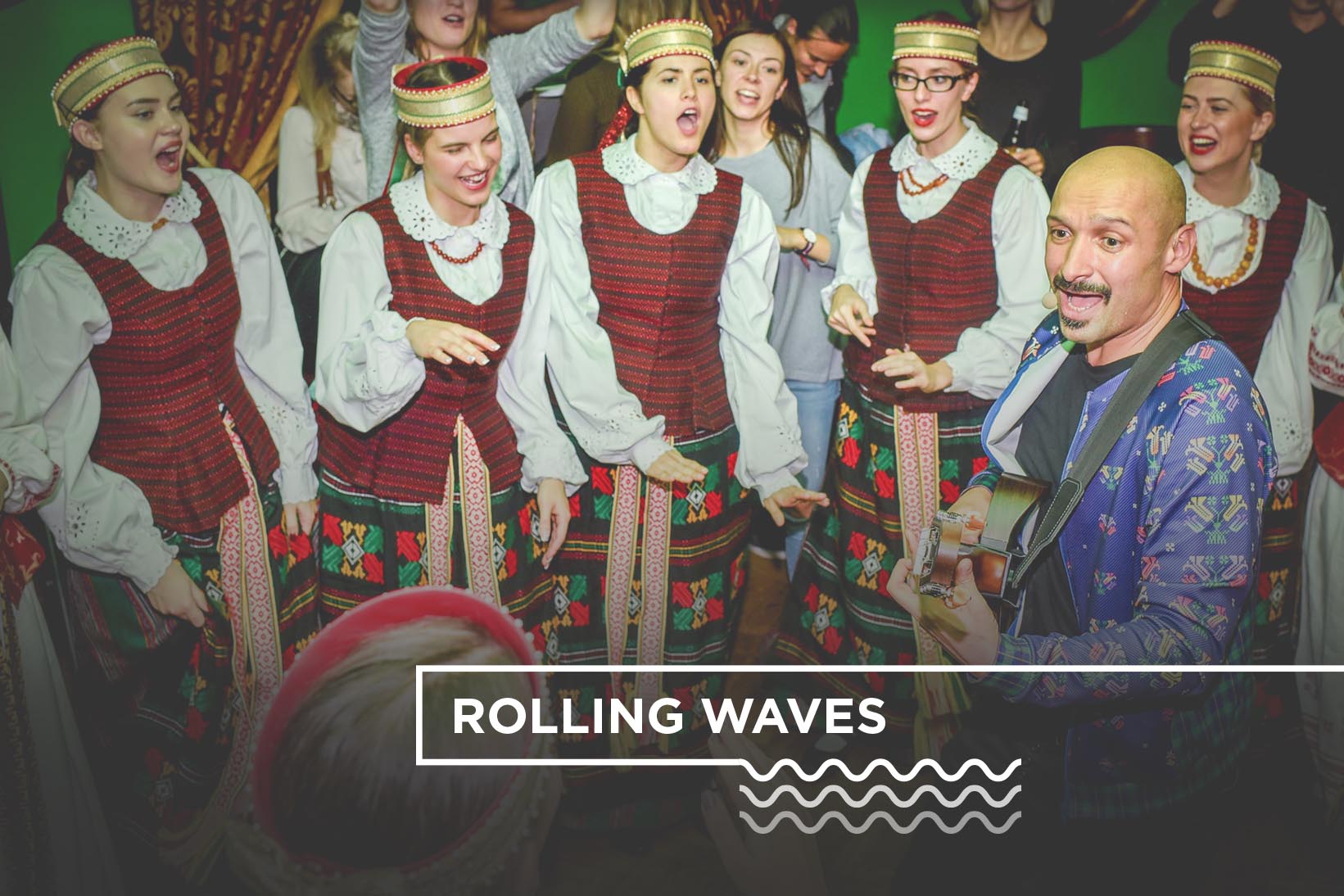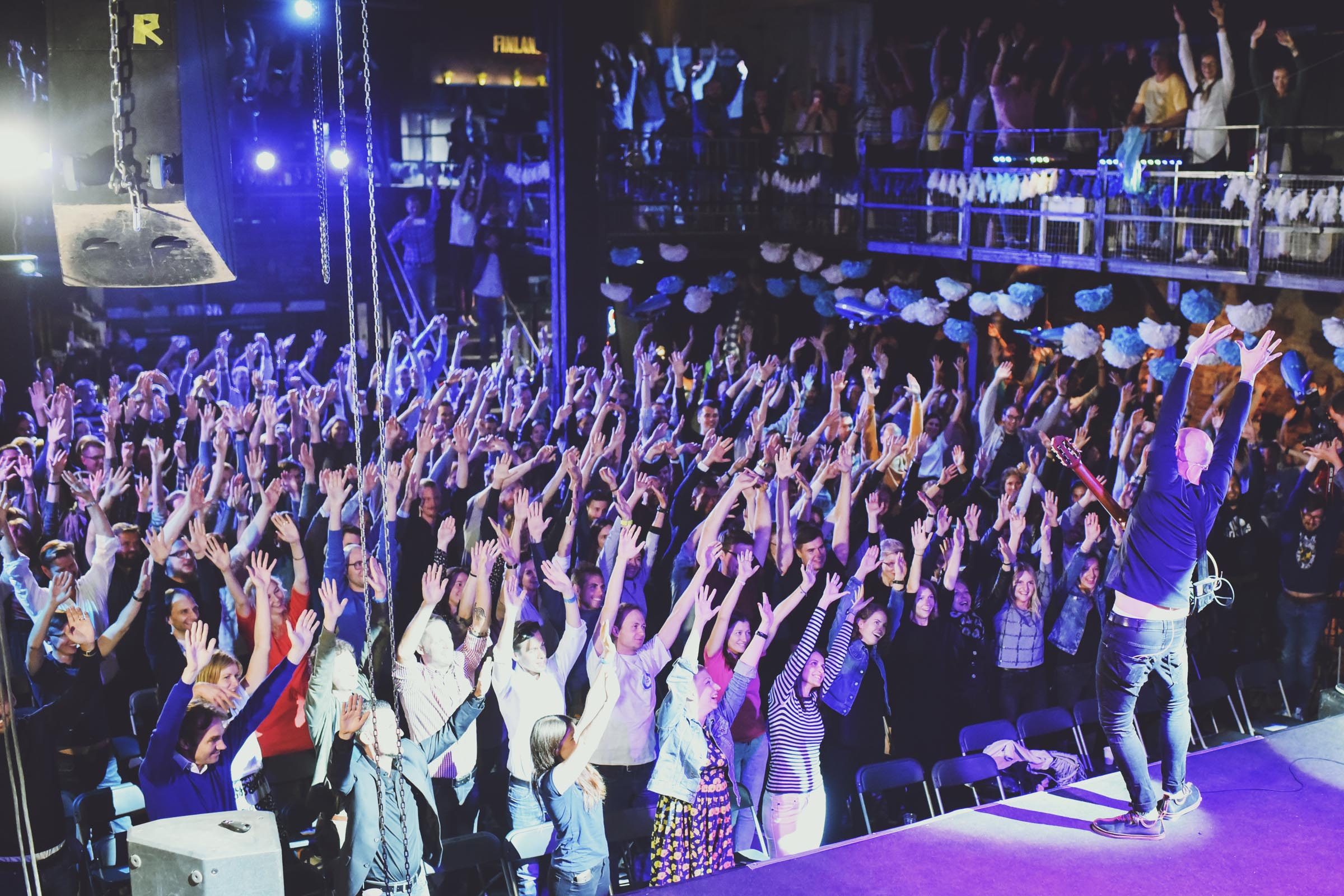Waves are energy in motion that displace all sorts of things in their wake; water under surfboards, air in the form of music, people searching for a better future. Waves are meant to roll.
And songs are meant to be sung. We take them for granted as they blare out our speakers and ooze through our earbuds, but often forget that the original journey of a song is very different from what know today. A song begins as intention. An emotion that takes the shape of sound. It rolls off of your vocal chords, fills a space, weaves itself with other sounds, and returns through your ears. You repeat it. It evolves. Other people catch the contagion and begin to sing it. It comes back to you and grows more, but by then it is no longer yours. It belongs to everyone who has a voice and is not shy to sing it. It then takes up residence in the collective consciousness waiting to be summoned.
Before audio recordings and speakers, people were sound systems. Before woodwork and electronic engineering, our minds and bodies were our instruments. Before sheet music and mass communication, songs traveled on lips. Before radio stations and playlists marked the pace of your daily routine, the songs in our heads were the soundtrack of our lives. Evolution is neither good nor bad, but music is a sublime activity that we are not enjoying as much as we could, simply because we are partaking less in music than ever before.
“Rolling waves” is an experiment in interpersonal connection and collective artistic expression. It is intended to remind us of the ritual of music. It is a spell that requires people to perform the incantation together. It is a song that invites you to sing – find a voice; a note or a phrase, and play with it for the sake of interaction. It encourages you to listen to others, become aware of the sounds that they are emitting and conscientiously tune yourself to the surroundings. It encourages you to sing with others and find a space amongst other voices. It is a reminder that it is in our nature to be intimately musical; that we can bask in a state of musicality rather than just consume it passively.
This song is also about ethnic roots, cultural heritage, and emigration. On February 16th, 2018 Lithuania celebrates 100years of statehood, an auspicious occasion to consider what cultural and patriotic affiliations mean to us. I personally believe that this sort of identity is something that belongs to the people rather than the state and its institutions. But if the people want to own it, we need to seize it and practice it.
Lithuanians were in the past a “singing people”. We found joy, strength, and connection through our songs and dances. We’d like to explore what shape those traditions can take in a modern context. That’s why we’ve teamed up with Lithuanians living in California and hardcore connoisseurs of traditional songs to create a mix that reflects the times we live in and can travel well beyond Lithuania’s borders. Its no coincidence that it sounds a bit like the “Beach Boys” took a trip on a Lithuanian “Kaimas”.
We believe that engaging in this song can help the participants reconnect with that “something” beyond the threshold of conscious memory; “something” old and deep.
As a child, I learned to listen to waves on the beach. I later realized that everyone hears voices in waves and that their song is tethered to our subconscious, like an acoustic mirror that whispers truths that no one else can articulate. If you listen hard enough you will often hear “something” that is a reflection of what you’ve got deep inside.
There are countless “Lithuanians” who have rolled across the globe during the numerous waves of emigration. Their offspring still have faint recollections and emotional footnotes that remind them of their heritage. This song is a great way for them, and particularly those on the outer fringe of the community to reconnect with their roots, with others, and with the memory of something magical from long ago.



